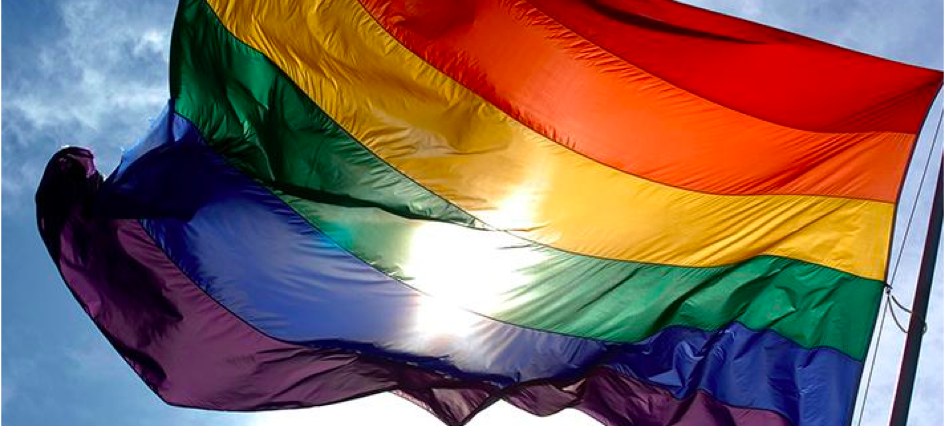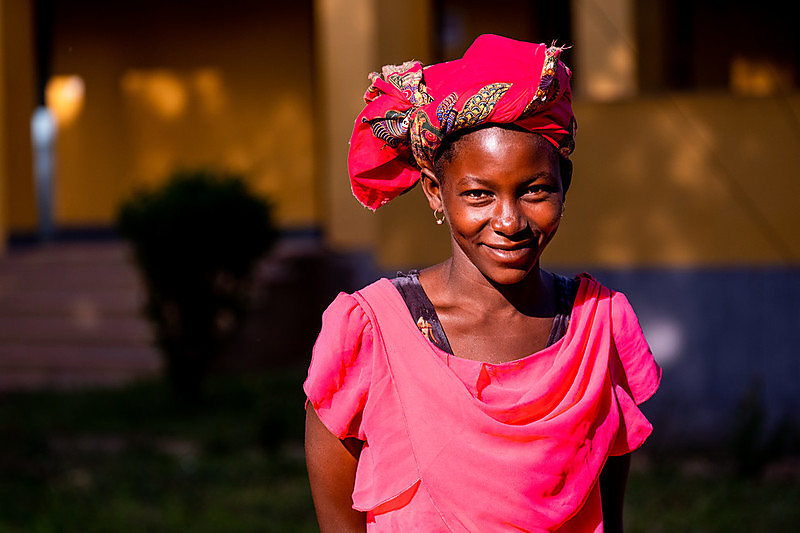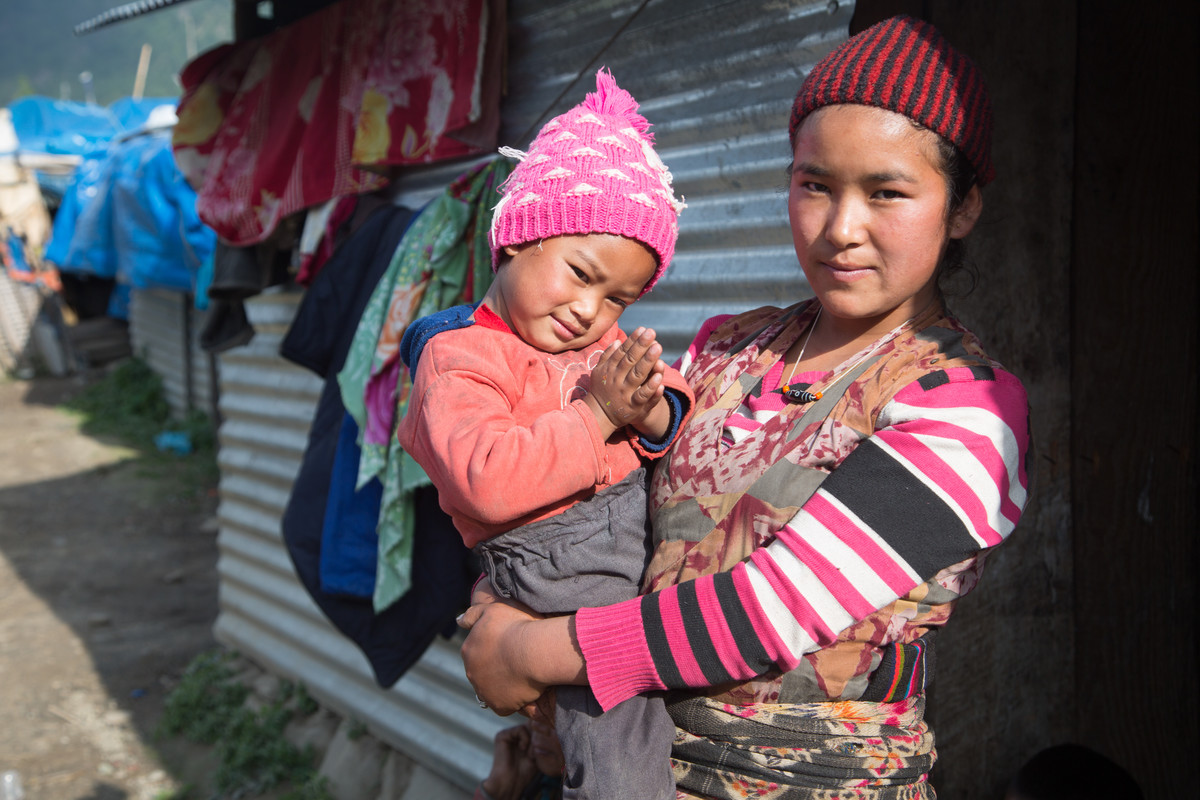
| 09 January 2020
IPPF's new project sets to change discriminatory laws related to sexual orientation, gender identity and expression in 12 countries
IPPF arranged the first meeting of the project group that is tasked to develop IPPF policy and advocacy work on SOGIE issues in Nairobi in November 2019. IPPF has chosen 12 member associations (MAs), two from each IPPF region, for this important work. Participants shared their countries’ political situation and discussed possibilities and strategies for changing restrictive laws and regulations. The participants feedback expressed that they were inspired by the range of advocacy experiences and ideas, the creative solutions to reformulate challenges to opportunities and the wins already achieved. The world has recently seen improvements in SOGIE rights but still around 70 out of 190 countries have criminalizing legislations. Processes of decriminalization using the judicial system was a main discussion. Participants from MAs in India, Botswana and Trinidad and Tobago described how this had been a successful strategy in their countries and what the role of a non LGBTI health and human rights organisation could be. Examples were shared on how to cooperate with LGBTI organisations, including hosting and help initiate them in their formative stages. Some of our member organisations described the success of building and strengthening partner networks over time to enable the building of skills and confidence. The participants also spent time discussing how to ensure institutional strengthening of their organisations ensuring the SOGIE knowledge and competence when carrying out advocacy. Making use of interns and ensuring this competence in the governing boards were among examples given. International human rights mechanisms like the Universal Periodic Review are advocacy opportunities where the organisations are participating through writing shadow reports and reporting the situation on the ground. In addition, there were presentations of how to address public opinion (this film from Romania can be used as an example) and raise awareness of changes that are needed, as well as how to build movements and the importance for collecting evidence and data. All these efforts require funding, thus the participants made advocacy plans that can be used when applying for support. The advocacy plans were made according to the IPPF strategies and the participants discussed how to make use of the IPPF tools. At the end the participants watched the upcoming documentary The Art of Sin about the first gay man from Sudan to come out, by Ibrahim Mursal (co-produced by Sex og Politikk, IPPF’s MA in Norway). The film follows the artist Ahmed Umar as he comes out and explores his identity both in Sudan (where death penalty can be imposed on men who have sex with men) and Norway. List of participants: The participants came from 12 IPPF member associations (MAs), two from each of the 6 IPPF regions in the world: Tunisia (ATSR), Morocco (AMPF), Botswana (BFWA), Kenya (FHOK), India (FPAI), Sri Lanka (FPASL), Nord-Macedonia (HERA), Romania (SECS), Cambodia (RHAC), Indonesia (PKBI), Guyana (GRPA) and Trinidad and Tobago (FPATT) as well as the steering group and the secretariat. The IPPF Steering Committee has one representative from each of IPPF 6 regions: Africa, Arab World, Europe, South East Asia and Oceania, South Asia and Western Hemisphere. The secretariat of the project is based at IPPF Norway (Sex og Politikk).

| 12 November 2019
IPPF unveils commitments at Nairobi Summit to transform lives of women, girls & marginalized groups
The International Planned Parenthood Federation (IPPF) has marked the start of the Nairobi Summit on ICPD25 by unveiling ambitious new commitments to drive forward gains in sexual and reproductive health and rights (SRHR). On the first day of the Summit, IPPF Director General Dr Alvaro Bermejo revealed four new key pledges covering comprehensive sexuality education (CSE), abortion care, the fight against discriminatory laws covering sexual identity and gender expression, and South to South cooperation between IPPF national Member Associations. Dr Bermejo told global and national leaders gathered to mark 25 years since the landmark International Conference on Population and Development (ICPD) that all participants at the Summit needed to recommit to transforming the lives of women and girls. He said: “179 national governments signed up to the ICPD Programme of Action in Cairo 25 years ago. But signing is one thing, implementing another. It’s still about translating commitments on paper into action; action to transform the lives of women and girls and marginalised groups. This has to be a priority. This Summit is needed because although Cairo was a monumental achievement, the years since have not fulfilled its promise. Twenty-five years ago, it felt like the tide of progress was flowing only one way. Authoritarianism was in retreat, or maybe even defeated. It doesn’t feel like that now. This conference is hugely important for SRHR. IPPF will be influencing governments to announce national commitments to re-endorse ICPD and make sure it become a reality, and changes women’s and girls’ lives for the better. And we are proud to make our own renewed commitments today. The ICPD Programme of Action continues to guide the work of IPPF Member Associations in every part of the world where we serve a woman, a girl or a young person and support their sexual and reproductive freedom.” Dr Bermejo unveiled four new commitments: (i) By 2025 IPPF, together with Rutgers, its national Member Association in the Netherlands, will: Provide 12 million young people in 30 focus countries with a specific focus on Africa, South-East Asia and Latin America/the Caribbean with comprehensive sexuality education (CSE), in and out of schools, through evidence-based approaches including innovative and digital ones. Influence governments of 42 countries to establish new or revised policy initiatives and/or legislative changes to include CSE into curricula of formal education programs or programs for out-of-school adolescents. Jointly establish at least three Centers of Excellence in priority regions to work in youth-centered programming and CSE and to build local capacity to deliver high-quality integrated gender and rights-based CSE. (ii) By 2022, IPPF will: Accelerate universal access to safe abortion by expanding the provision of quality and women-centered comprehensive abortion care, with a focus on implementing innovative strategies to reach underserved populations; providing support to women to self-manage medical abortion and improving access to and availability of medical abortion commodities. Champion reproductive freedom and stand firm against reproductive coercion by advocating for safe and legal abortion, and by defeating obstacles that undermine women’s reproductive autonomy. We will influence 20 governments to establish new or revised policy initiatives or to pass legislative changes in support of improved access to abortion. (iii) IPPF commits to increase South-to-South triangular cooperation by establishing at least seven Centers of Excellence to accelerate cross-Federation learning and fostering a Member Association centric approach, in areas such as comprehensive sexuality education, sexual and reproductive health in humanitarian settings, supporting social movements, and enhancing female leadership by 2022. (iv) IPPF and many of its Member Associations are fighting discriminatory laws based on sexual orientation and gender identity. We commit to supporting each other and engaging with partners to ensure at least six countries change these laws by 2025.

| 29 March 2019
IPPF welcomes outcome from the 63rd Session of the Commission on the Status of Women
IPPF is pleased to welcome a successful outcome from the Commission on the Status of Women at its 63rd Session this year, focusing on “Social Protection, Access to Public Services, and Sustainable Infrastructure for Gender Equality and the Empowerment of Women and Girls.” The Agreed Conclusions provide vital guidance on the role that social protection, public services and sustainable infrastructure can have in dismantling unequal systems of power that disadvantage women and girls. Taking on the topic for the first time, Member States emphasized that social protection, public services and sustainable infrastructure are interlinked and mutually reinforcing; stressed the need for coordinated approaches, financing and policy coherence; and requested the revision of cash transfer conditionalities that reinforce gender stereotypes. They urged a comprehensive, integrated approach to ensure gender-responsive policy-making, specifically calling for gender-responsive migration policies, social protection floors, accountability mechanisms for social protection, public services and sustainable infrastructure projects, and strategies to mitigate and adapt to climate change. Furthermore, Member States recognized that health disparities, including reproductive health and inadequate access to family planning services, are exacerbated by multiple and intersecting forms of discrimination and urged governments to ensure acceptable, accessible, available and quality health care services. As in past years, the Commission reaffirmed the need for governments to ensure universal access to sexual and reproductive health and reproductive rights and the human rights of women including the right to have control over and decide freely on all matters relating to their sexuality. The Agreed Conclusions also reaffirmed prior agreements on education, gender-based violence, the need for policies that address the diverse needs of families, as well as the responsibility of the state to protect women human rights defenders. We congratulate the Member States for finding common ground on critical issues and demonstrating the continued critical importance of the Commission on the Status of Women and defending and advancing women and girls’ rights year after year, despite particularly aggressive strategies this by some groups attempting to chip away at established rights for women and girls. IPPF is committed to remaining a strong partner in protecting and promoting women and girls’ rights and we look forward to the 25th anniversary of the Beijing Platform for Action in 2020.

| 21 February 2018
Sex og Politikk Hosted an IPPF Conference On CSE Best Practises In Oslo
UNESCO recently released revised technical guidelines for comprehensive sex education (CSE), The publication identifies an urgent need for quality comprehensive sexuality education to: provide information and guidance to young people about the transition from childhood to adulthood and the physical, social and emotional challenges they face. tackle the challenges posed by sexual and reproductive health issues, which are particularly difficult during puberty, including access to contraception, early pregnancy, gender-based violence, sexually transmitted infections (STIs) and HIV and AIDS raise awareness of HIV prevention and transmission, of which only 34 per cent of young people around the world can demonstrate accurate knowledge complement or counter the large body of material of variable quality that young people find on the internet, and help them face increasingly common instances of cyberbullying. When UNFPA invited partners to a global conference on CSE in Norway, IPPF and its Norwegian member association Sex og Politikk decided to host a conference on CSE to feed into the Norwegian governments conference. On December 12-13 2017, almost 60 participants from 31 countries were gathered in Oslo, Norway to discuss CSE. In collaboration with IPPF secretariat, its central office and the six regional offices, Sex og Politikk prepared and hosted the conference. All the regions were represented by both member organisation representatives and regional office staff. After the welcoming speech by NORAD director of health and education Paul Fife on behalf of the Government of Norway a panel of CSE best practices around the world set the scene, where we could hear from representatives of IPPFs member associations (MAs) in India, Denmark, Palestine, Togo, Thailand and Colombia. Laura Hurley, technical adviser on youth at IPPF , gave an overview of the upcoming ‘CSE Institute’, which will be launched as a pilot in 2018. The Institute is working with the Swedish, Dutch and Danish MAs to develop technical assistance for other MAs wishing to build their CSE work, as part of the wider ‘Technical Assistance Network’ initiative. Two successful collaborations between IPPF MAs were also presented to inspire participants. RFSU Sweden’s collaboration with RHAC Cambodia on CSE, as well as Sex og Politikk Norway’s collaboration with CFPA Cyprus. A lot of time was set aside for group discussions at the conference, to ensure that everyone had the chance to share their experiences. One of the conclusions was that there is a lot to learn from each other and that there is vital work being done by IPPF and its member associations on CSE around the world. More specifically, the participants agreed on the importance of a multi-pronged approach to CSE, and including the whole community as much as possible both to deliver and to advocate for CSE. Another takeaway was to ensure a holistic approach to CSE on all levels. In many contexts, CSE can be controversial, and it is essential to know your context well in order to navigate the climate wisely. UNESCO, Jenelle Babb, presented the revised technical guidelines on CSE for us. Attendees were glad to learn that the guidelines shift from CSE as ‘prevention’ to a positive framework and that links to the Sustainable Development Goals are included. The conference concluded by agreeing a joint statement. The executive director of Sex og Politikk, Tor-Hugne Olsen, presented this statement to the UNFPA/Norway conference on December 14. By: Marianne Støle-Nilsen, Senior Advisor, Sex og Politikk The full report and summary can be found here.

| 17 January 2018
International Technical Guidance on Sexuality Education
IPPF welcomes the new International Technical Guidance on Sexuality Education, which was published last week by UNESCO in collaboration with UNAIDS, United Nations Population Fund (UNFPA), United Nations Children’s Fund (UNICEF), UN Women, and the World Health Organization (WHO). This Guidance calls for comprehensive sexuality education (CSE) for young people to promote health and wellbeing, respect for human rights and gender equality, and empowers children and young people to lead healthy, safe and productive lives. The Technical Guidance is designed to assist education policy makers in all countries to design accurate and age-appropriate curricula for children and young people aged five and up. Based on a review of the current evidence and best practice from around the world, the Guidance notably demonstrates that high-quality, comprehensive sexuality education: can contribute to delayed sexual debut, increased use of condoms and other contraception methods, and may help promote more positive and healthy attitudes and behaviours regarding sexual and reproductive health is essential to combat the school dropout of girls due to early or forced marriage, teenage pregnancy and sexual and reproductive health issues is necessary because in some parts of the world, two out of three girls reported having no idea of what was happening to them when they began menstruating and pregnancy and childbirth complications are the second cause of death among 15 to 19-year olds The publication identifies an urgent need for quality comprehensive sexuality education to: provide information and guidance to young people about the transition from childhood to adulthood and the physical, social and emotional challenges they face. tackle the challenges posed by sexual and reproductive health issues, which are particularly difficult during puberty, including access to contraception, early pregnancy, gender-based violence, sexually transmitted infections (STIs) and HIV and AIDS raise awareness of HIV prevention and transmission, of which only 34 per cent of young people around the world can demonstrate accurate knowledge complement or counter the large body of material of variable quality that young people find on the internet, and help them face increasingly common instances of cyberbullying. IPPF is committed to increasing access to rights-based, inclusive CSE, and in 2016 we provided over 28 million young people with a quality-assured CSE programme. Our Framework for Comprehensive Sexuality Education supports the provision of CSE that equips young people with the knowledge, skills, attitudes and values they need to determine and enjoy their sexuality – physically and emotionally, individually and in relationships. IPPF has reaffirmed this commitment by including CSE as a key objective of our Strategic Framework and pledging to enable one billion people to act freely on their sexual and reproductive health and rights by 2022. We congratulate all stakeholders who rallied together to produce this Guidance in support of young people’s right to education and information about their sexual and reproductive health and rights.

| 30 March 2017
IPPF responds to the announcement of funding from the Government of Japan
IPPF’s Director General, Tewodros Melesse, has paid tribute to the Government and people of Japan, following the announcement that Japan will support the provision of sexual and reproductive health and rights (SRHR) for 2017. The Japanese Government has announced that it will contribute approximately 3.1 billion yen (roughly $28 million) to IPPF and the United Nations Population Fund (UNFPA) in annual support. Mr Melesse said: “IPPF is grateful for Japan’s continuing support to SRHR through funding IPPF and UNFPA. Particularly in the current negative climate around SRHR, Japan’s expression of its strong will to continue its support for SRHR is warmly welcome.” “Japan’s long-lasting support for IPPF and for sexual and reproductive health care and rights has always been appreciated. These funds will help IPPF member associations around the world mitigate the cuts in funding we are seeing from some other sources. This will help protect health and save the lives of many people, especially women and girls.” Mr Melesse added: “We agree completely with the Government of Japan when it says that the provision of services relating to sexual and reproductive health and rights is essential for realizing universal health coverage (UHC), that ensures affordable access to basic health services for all whenever they need them throughout their lives. This is stated clearly in the Basic Design for Peace and Health, Japan’s global health policy and one of the outcome documents of the G7 Ise-Shima Summit, as well as in an outcome document from the The World Assembly for Women in Tokyo 2016 (WAW), the Third United Nations World Conference on Disaster Risk Reduction and the Sixth Tokyo International Conference on African Development (TICAD VI). IPPF would like to congratulate Japan’s leadership and commits to working closely with the Government of Japan to make a real difference to the lives of women, men and young people in around world and to achieve the Strategic Development Goals.” IPPF received approximately $1.13m from Japan in early 2017 for its activities targeted to Syrian refugees and internally displaced people, and will receive funding of $7.76m which was recently approved by the Japanese Parliaments.







